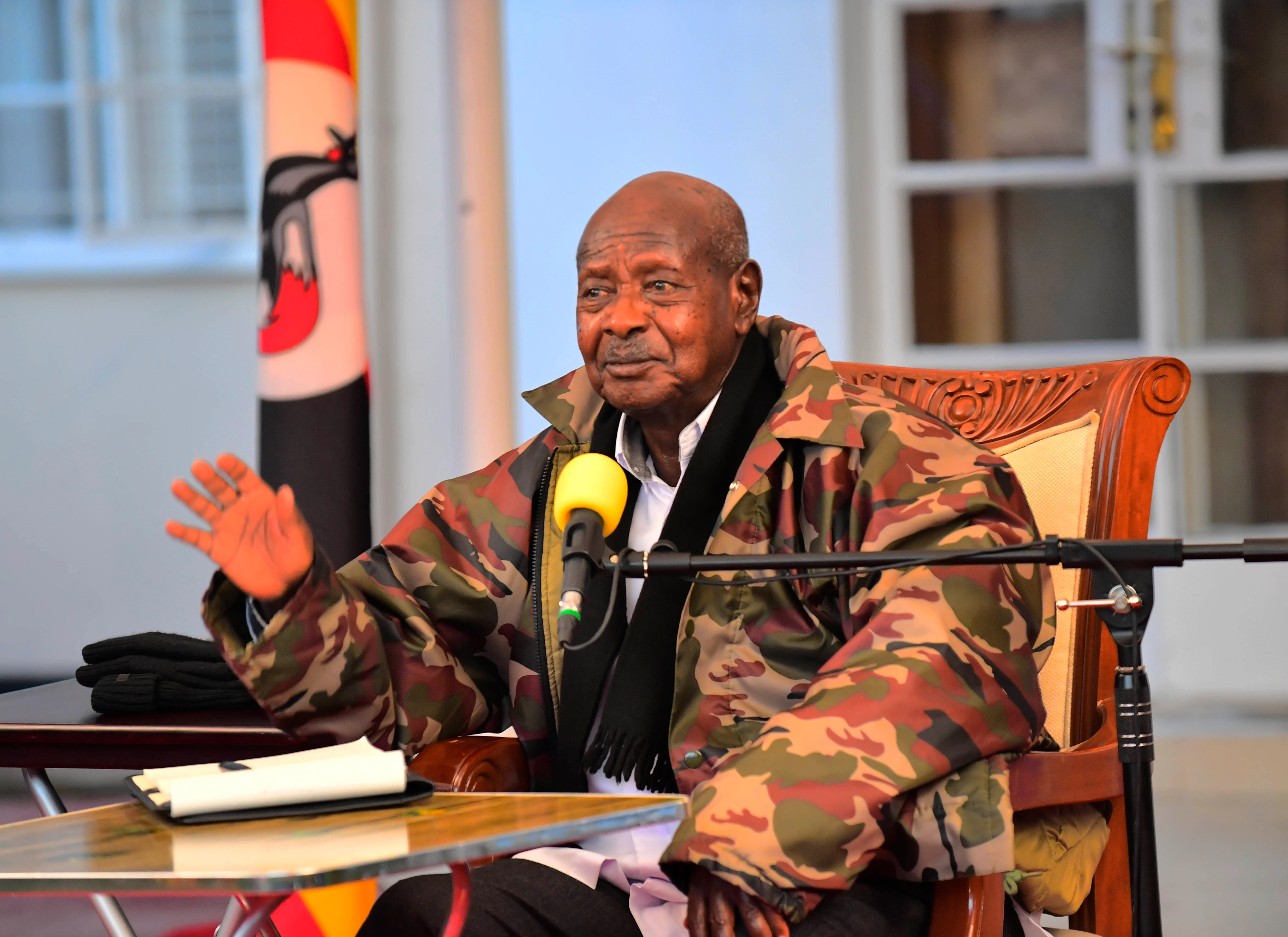PDM is Part of Our Philosophy From the 1960s- Museveni

President Museveni has said that the Parish Development Model (PDM) program is one of the National Resistance
Movement (NRM) government’s deliberate interventions to get people out of poverty.
“The program of PDM is part of our philosophy from the 1960s.We didn’t believe that we should have poor people in our country. Before Amin came, we were mobilizing people to get out of poverty through education and sensitization. We would walk through the kraals in Ankole and talk to the people. We didn’t have any money or anything but just educating
and it helped. It was our ideological position that we should not have poor people,” the president explained.
President Museveni made the remarks at State Lodge-Fort- Portal during an interaction with Journalists from the Rwenzori sub- region where he is currently on an assessment tour of the PDM program.
He revealed that the amount of Shs1 million per eligible household at the Parish level was arrived at using the enterprise of coffee as the reference point.
The President was reacting to some of the concerns raised by journalists that Shs 1 million given out under the PDM program is not enough to help the wananchi get out of poverty.
“At that time, to plant an acre of coffee you needed 450 Robusta seedlings. You needed Shs180,000 which would leave the borrower with Shs820,000 for other things like digging holes etc. So that was our reference point at that time. But we can add on. What we want is people to get out of money-less-ness and get money,” the President asserted.
President Museveni explained that this was just the beginning, and plans are underway to increase PDM funding, but the government wants to first start with people who don’t have any means of creating wealth at all and later progress to those who at least have some basis.
“NRM government interventions started with Entandikwa, then with NAADS, and later on with Operation Wealth Creation and now PDM. The difference with PDM is its beneficiaries get the money directly through their SACCOs. This is different from the others where the government people were the ones deciding who to get. So this is just the beginning,” he said.
To illustrate his point, President Museveni cited some of the beneficiaries who shared their testimonies like the 65-year-old blind Pelucy Biira of Kasese and the 60-year-old Rubirizi as well as Steven Kisembo of Ntoroko who are now picking up after getting the PDM support.
“So, once we cover those who owned nothing, then we shall now move to those who own something but small. It is just the beginning, the program is continuous, if it runs for 15 years all those parishes will be totally transformed and the money will be there because it is revolving,” he said.
Additionally, the president announced that the government is to start other funds to cater for fishermen on Lake Albert and other lakes because Shs1 million is insufficient for them.
“They need more than Shs1 million, they need at least Shs 4 million minimum why? Because they need to buy boats, nets and they are expensive,” he said.
On the issue of bad roads in some of the rural areas, the president noted that it was poor planning on the part of local government leaders who should consistently maintain the roads by compacting them with murram.
“There are some areas like in Obongi in West Nile and Kibuku in Pallisa, the roads are very good. But in some areas, they are very bad. So, it’s the local leaders. For us we have improved the money. It used to be shs 300 million, we have added another billion so it is now Shs1.3 billion and if the money is not enough, we shall add,” he said.
The president also welcomed the proposal by one of the journalists to equip parish chiefs with computers. He, however, reiterated his stern warning to local leaders not to make any deductions on the PDM funds as the government covers bank charges.
“Nobody will be allowed to deduct PDM money, anybody who deducts will go to jail,” the president warned.
He also emphasized the need to prioritize environmental protection to mitigate climate change effects and for
people to desist from settling at the steep slopes of the mountains.



0 Comments